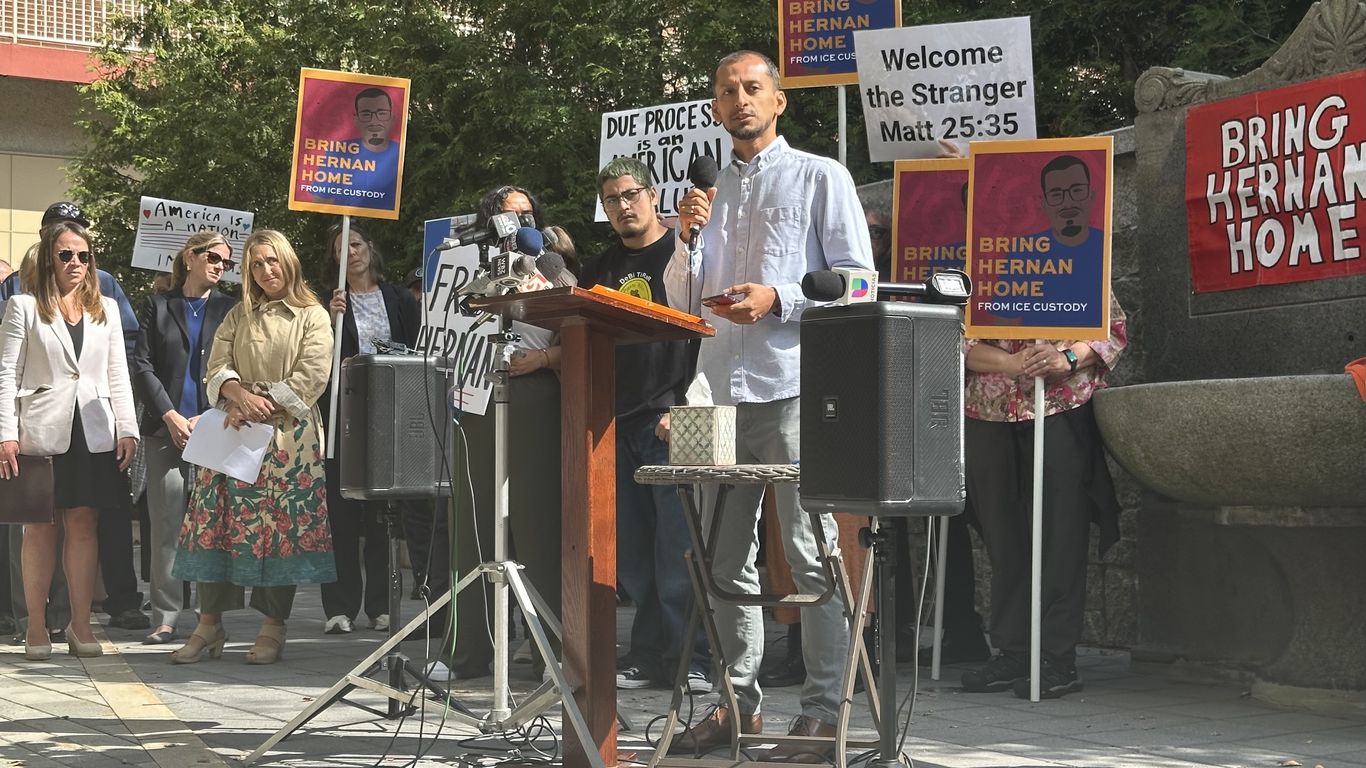It’s a familiar scene: neighbors, attorneys and activists rallying with immigrant families over the loved ones lost in the federal immigration system.
- Dozens came together in Malden on Monday, this time for Edgar Hernan Elias Escobar.
The big picture: Elias Escobar, a native of El Salvador with no criminal record, joins a growing population of newcomers disappearing from the streets of Malden, Somerville and other Boston-area communities in the past two weeks.
Catch up quick: Elias Escobar, an undocumented immigrant who was obtaining papers through a family-based petition from his wife, was stopped by immigration agents on his way to a construction job Wednesday.
- Agents smashed his car window and pulled him out, even after his wife, Leslie Perlera Gonzalez, showed up saying he had a pending immigration petition, GBH News reported.
- A Department of Homeland Security official later told Axios he refused to roll down his window and that the “officers took appropriate action and followed their training to use the minimum amount of force necessary to resolve the situation.”
State of play: Elias Escobar is detained in the Plymouth County Correctional Center with other immigrant detainees.
- Greater Boston Legal Services, where Perlera Gonzalez works, filed a lawsuit alleging his rights were violated.
Yes, but: The Trump administration has fought habeas lawsuits over immigrant detainees tooth and nail since ramping up immigration enforcement this year.
Context: Immigrants have historically been allowed to adjust their status through a handful of avenues if they have a relative or spouse who is a U.S. citizen.
- With the exception of the first Trump administration, it is uncommon for immigration officials to detain and seek to deport an immigrant mid-petition or with legal status if the person poses no public safety threat, said Maggie Morgan, managing attorney for the GBLS immigration unit.
Morgan says she has seen reports of immigration agents detaining people before confirming their identity or status.
- “This is violating due process not just for those individuals, but for everyone in the community who could be at risk of having this happen to them,” Morgan said.
Zoom out: The LUCE hotline has received more than 100 calls in the last week flagging immigration enforcement activity.
- Somerville residents tried to stop immigration agents from questioning a man they stopped. He complied and, within minutes, was placed in handcuffs despite having no known record, Rep. Mike Connolly told the Cambridge Day.
What they’re saying: “I believe that if Hernan doesn’t get to come home, it has little to do with the rights or whether he deserves to be an American and more to do with the U.S. deciding who it likes,” Frank Pinto, Perlera Gonzalez’s cousin, told the crowd Monday morning.
The other side: The DHS official said any claims of racial profiling are “categorically false.”
- “What makes someone a target of ICE is that they are in our country illegally—not their skin color,” the official said. “DHS enforcement operations are highly targeted, and officers do their due diligence.”
What we’re watching: A federal judge will have to decide whether Elias Escobar’s lawsuit can move forward and if he can continue to pursue his immigration application.
https://www.axios.com/local/boston/2025/09/22/ice-arrests-malden-somerville








